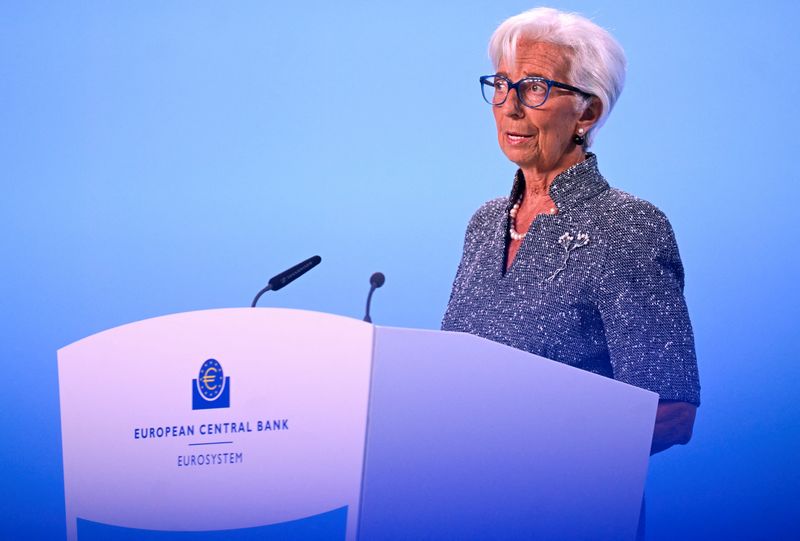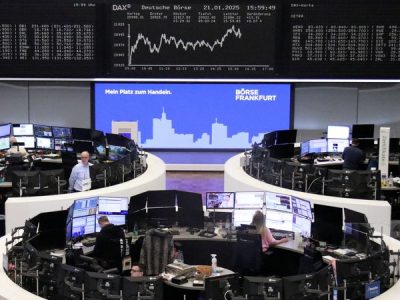
(Reuters) – U.S. stock index futures slipped on Wednesday as geopolitical tensions in the Middle East and a domestic port strike kept investors on edge ahead of data expected to shed light on the health of the economy and the monetary policy trajectory.
Wall Street’s main indexes had a dour start to the final quarter of the year, with the S&P 500 and the Nasdaq touching about two-week lows in the previous session, as investors sold riskier assets after Iran fired missiles against Israel in retaliation for its attacks in Lebanon.
Markets held their ground as Israel and the U.S. vowed to strike back, although oil stocks such as SLB and Occidental Petroleum (NYSE:OXY) added about 2% each in premarket trading, tracking crude prices, which jumped more than 2.5% as traders priced in possible supply disruptions from the oil-rich region. [O/R]
Defense stocks such as Lockheed Martin (NYSE:LMT) added 1.3% and RTX gained 1.4% after the broader S&P 500 aerospace and defense index hit a record high in the previous session.
“The situation remains highly volatile, but if Israel’s response is not too aggressive, markets may take the view that both countries are for the second time this year preferring to de-escalate after a brief hostile exchange,” analysts at ING bank said.
At 05:28 a.m. ET, Dow E-minis were down 174 points, or 0.41%, S&P 500 E-minis were down 15.25 points, or 0.26% and Nasdaq 100 E-minis were down 50.25 points, or 0.25%.
Futures tracking the small-cap Russell 2000 index fell 0.8%, while safe-haven Treasury bonds dipped after Tuesday’s surge. [US/]
The CBOE Volatility Index, Wall Street’s fear gauge, hovered near a three-week high and was last at 19.5.
On the data front, the ADP National Employment survey for September, which is expected to provide insight on the state of the labor market, is due at 08:15 a.m. ET. The pivotal non-farm payrolls data for September is scheduled to be released on Friday.
Markets ended the last month on a strong note after the U.S. Federal Reserve kicked off its monetary policy-easing cycle with an unusual 50-basis-point rate cut in an effort to shore up the jobs market, which has taken on a greater importance in the central bank’s dual mandate of price stability and low unemployment.
Odds of the Fed delivering a smaller quarter-percentage-point rate reduction in November stand at 63.3%, up from 42.6% a week ago, according to the CME Group’s (NASDAQ:CME) FedWatch Tool.
Investors also monitored a dockworkers’ strike on the East and Gulf coasts which entered its second day. The walkout could cost the American economy roughly $5 billion a day, analysts at JPMorgan estimated.
Some companies such as Costco (NASDAQ:COST), Walmart (NYSE:WMT), Merit Medical Systems (NASDAQ:MMSI), McCormick (NYSE:MKC) and Designer Brands (NYSE:DBI) have said they had planned for the strike. Their shares were flat in premarket trading.
Analysts said the spike in oil prices, along with the port strike, could raise inflation, which neared the central bank’s 2% target recently.
Among others, Dow-component Nike (NYSE:NKE) slid 5% after withdrawing its annual revenue forecast just as a new CEO is set to take the helm at the sportswear giant.
Markets will also parse remarks from policymakers including Beth Hammack, Alberto Musalem, Michelle Bowman and Thomas Barkin through the day.












